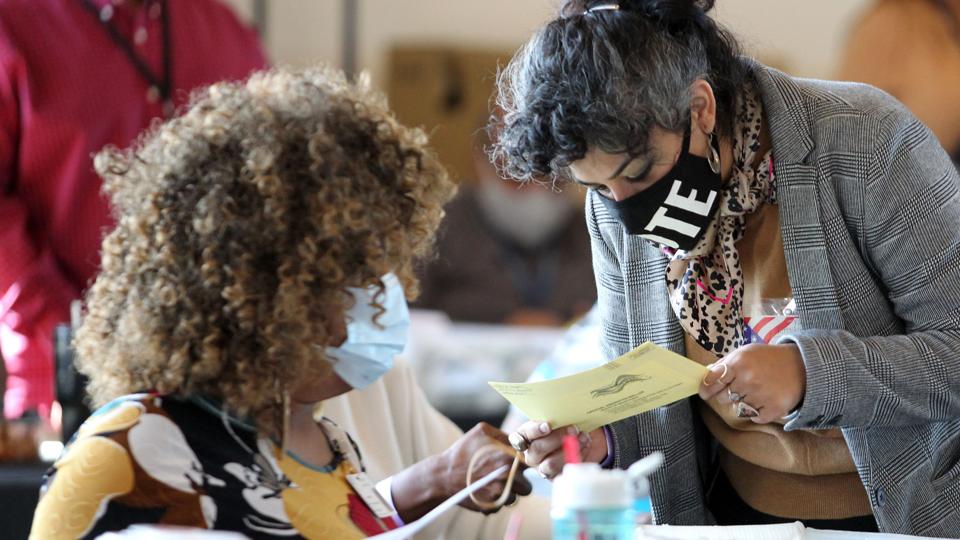Published on August 14, 2025
From March 1, 2026, foreigners of aspirants of employment or self -employed visitors must acquire a work permit to work within the borders of Georgia. This change is intended to reduce the number of foreigners working on a tourist visa, which was a problem. This change will also try to control Georgia's labor market. Many Georgia companies and foreigners require these changes to adapt to ensure that they remain within the legal limits of the new laws of Georgia Work Visa. Georgia also set high fines for non -compliance.
From March 1, 2026, Georgia will introduce a formal work permit system for foreign employees and the self -employed and mark a significant shift in the current guidelines. Until then, most foreigners had freedom without working a certain work permit. According to the new regulations, almost all foreign employees and the self -employed must receive a work permit with serious punishments for non -compliance. Let us go down with the changes that mean job seekers, expatriates, freelancers and companies in Georgia.
New work permit system overview
So far, Georgia has had one of the most relaxing employment guidelines in the region. Foreigners, as long as they had a valid visa, a residence permit or were freed from the visa requirements, could work freely without needing a work permit. This simple system changes drastically from March 1, 2026.
From this date, foreign nationals who work or operate companies in Georgia must receive a work permit. This includes employees who work for both Georgian companies as well as for self -employed people such as freelancers and consultants. Companies that hire foreign employees are responsible for the application for their employees.
Who will be affected?
The new provisions on the work permit will largely influence foreigners who want to work in Georgia. However, certain categories of individuals are freed from these rules.
People who have to apply for a work permit:
- Foreign employees who work for companies in Georgia
- Independent foreigners, including freelancers, consultants and contractors
Exceptions:
The following categories of individuals are not necessary to receive a work permit:
- Constant residents of Georgia
- Refugees and asylum seekers
- Owner of a valid investment stay approvals
- Other exceptions can be defined in the final regulations that are to be published by the government.
What about those who are already working in Georgia?
If you are currently working in Georgia before the new law comes into force, you do not have to apply for a work permit immediately. However, you have to secure one by January 1, 2027. This gives foreign workers who already have a one -year transition period in Georgia to comply with the new regulations.
Work permission processing timeline
The Georgian government has declared that the processing time will take up to 30 calendar days for a work permit. However, the special features of the process, including the simple, how simple or complicated it will be. Applicants can expect a new administrative class to be added to the existing visa and residence permit processes, which may lead to additional delays when hiring foreign employees.
Consequences for non -compliance
If you do not secure a work permit, both foreign employees and their employers can lead to high fines. If a foreign employee is caught working without permission, punishments are imposed, and repeated criminals can be exposed to escalating fines, which may be doubled or tripled with subsequent crimes. This makes compliance a critical topic for both employees and companies that employ foreign nationals.
For companies, ensuring compliance with these new regulations requires careful planning and administrative attention, since no compliance can lead to considerable financial consequences.
What does this mean for employers
For companies that work in Georgia, this new work permit system gives the hiring process another layer of bureaucracy. Employers must now take additional administrative tasks, additional costs and longer schedules for the on -board parts into account. With the possibility of delays or rejections when applying for work permits, companies could have difficulty bringing important foreign employees into the country.
The effects of these new rules on setting strategies could be far -reaching. For industries that are strongly dependent on international talents such as technology, advice or finance, the new system can lead to longer lead times for recruitment and potentially disrupt business operations.
Why the change?
The Georgian government has introduced these new rules to bring more structure and supervision on the labor market. The aim is to prevent foreigners from going to the country in tourist visa and working illegally, which was a growing problem. By introducing a formal work permit system, the government hopes:
- Monitor and pursue the participation of foreign workers more effective
- Determine not authorized workers
- Protection of local workers and ensure fair employment practices
These measures are intended to create a more regulated and transparent employment environment in Georgia and benefit both local employees and foreigners.
The wide outline of the new work permit system was created, but the complete details are still available. In the coming months, the Georgian government is expected to release more specific regulations that clarify:
- The exact admission criteria for the work permit
- Detailed application procedure
- Additional exceptions that can apply
If you plan to live and work in Georgia or if your company depends on foreign talents, it is important to stay up to date on these upcoming regulations.
From March 1, 2026, foreign employees and self -employed travelers must receive a work permit to ensure better monitoring of the labor market and to prevent non -authorized work as part of tourist visa. This new policy aims to protect local employees and regulate the participation of foreign workers.
Georgia's step to implement a formal work permit system is a significant change for foreign employees and companies in the country. If you are a foreign national or employer in Georgia, it is now time to prepare for the new requirements. The days of work in Georgia, without the need for a work permit, come to an end, and the switch to a more regulated labor market will have an impact on job seekers, freelancers and companies. Be sure to stay up to date with the final regulations and start for this transition as soon as possible.








